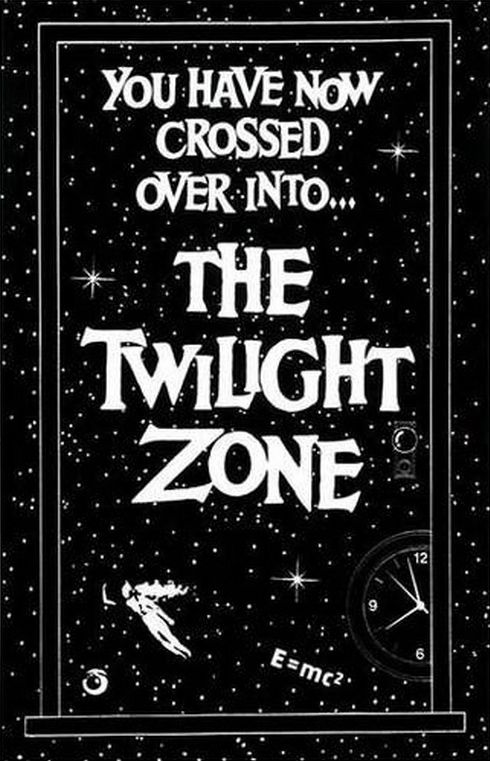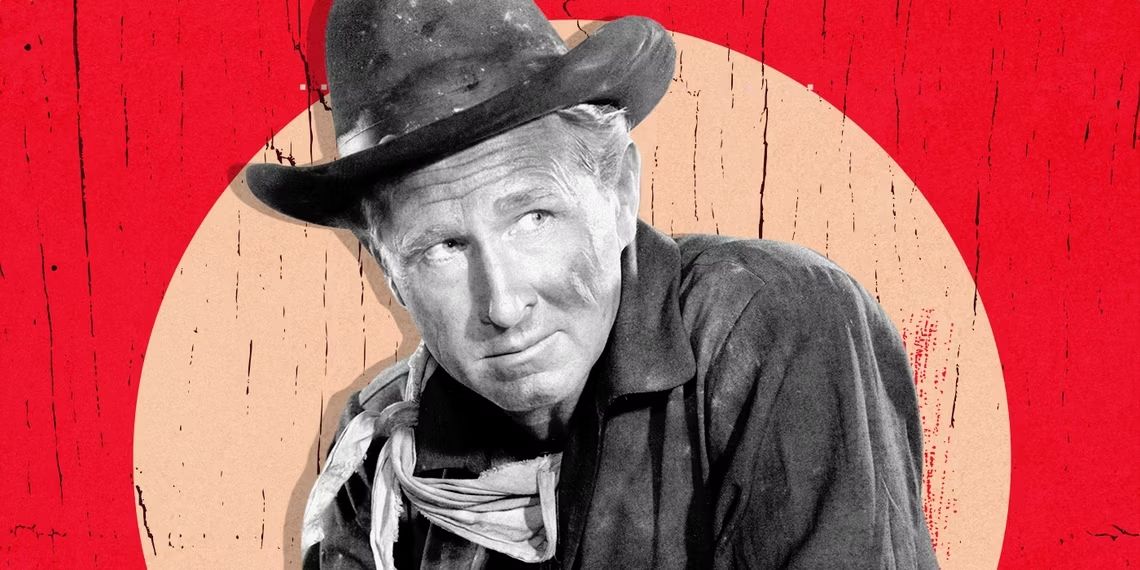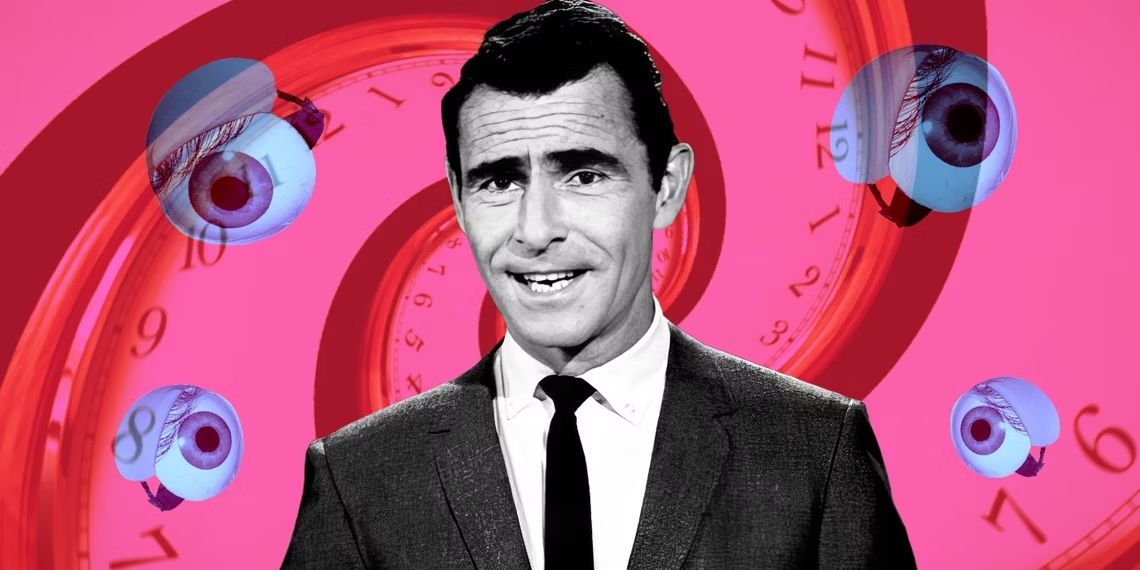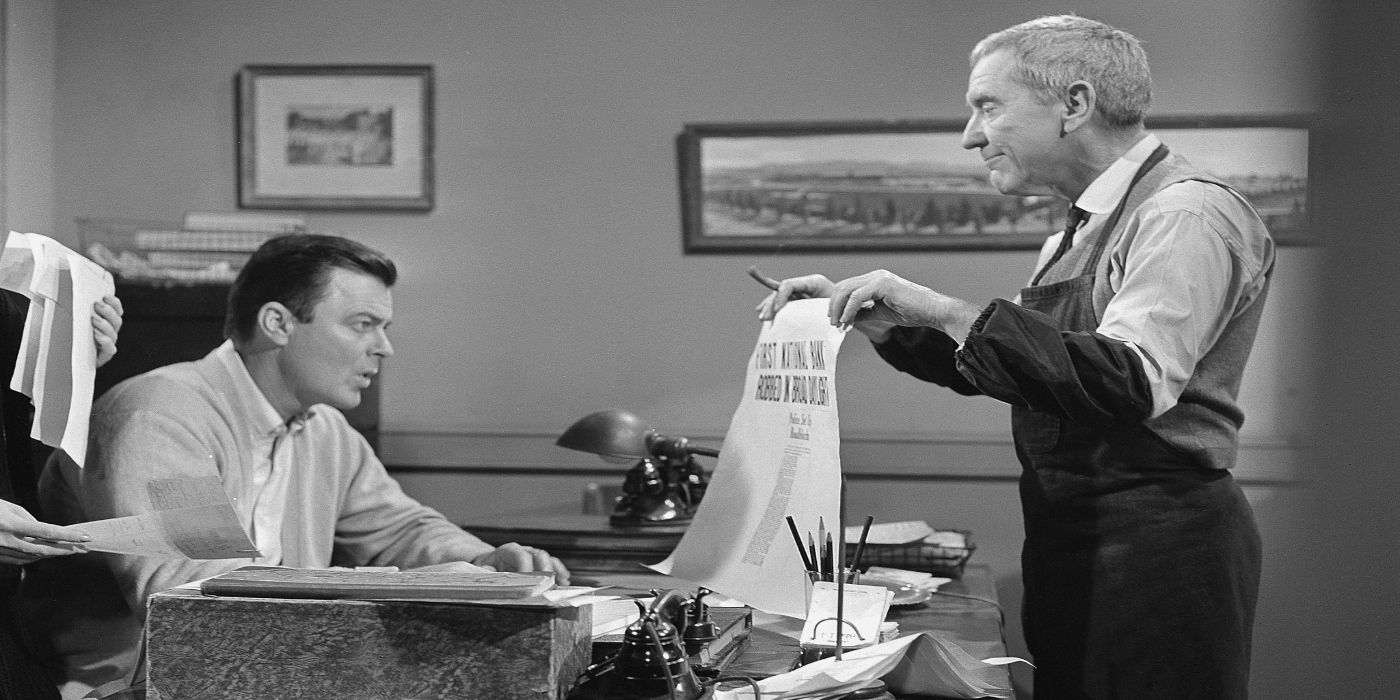The Big Picture
- The original run of The Twilight Zone got cancelled twice, despite never missing a year on the air.
- Rod Serling found success after The Twilight Zone with Night Gallery and Planet of the Apes.
- The series finally got cancelled for good after Season 5 due to declining ratings and budget cuts.
Who doesn't love The Twilight Zone? Rod Serling's iconic TV series ran for only five years, but despite that relatively short time on the air, it has lived on to this day as one of the most iconic and beloved shows ever made. This was a series that regularly flipped the script on horror and science fiction writing, both playing with both genres' most common tropes while typically finding a way to subvert our expectations at the same time. Unfortunately, good things can't last forever. In fact, we're lucky we got The Twilight Zone at all. It brings us no joy to say that The Twilight Zone actually got cancelled more than once.

The Twilight Zone (1959)
Ordinary people find themselves in extraordinarily astounding situations, which they each try to solve in a remarkable manner.
- Release Date
- October 2, 1959
- Creator
- Rod Serling
- Cast
- Rod Serling , Jack Klugman , Burgess Meredith , John Anderson
- Main Genre
- Sci-Fi
- Seasons
- 5
'The Twilight Zone' Faced Many Issues
Somehow, the original 1959 to 1964 run of The Twilight Zone managed to get cancelled two times, all while never missing a single year on the air. These cancelations occurred for various reasons, ranging from creative and financial decision-making, once for an inability to acquire sponsorship, and for the final time after Season 5 due to continued fights between Rod Serling and CBS executive James Aubrey. While money troubles are as reasonable of an excuse to cancel anything, it's absolutely dumbfounding to learn that anyone would have the audacity to stand in the way of Serling's creativity. Play with Rod once, shame on you. Play with him twice — that's just criminal!
These days, everyone knows and loves The Twilight Zone, but things weren't always so bright for this series. Before the three reboots, a troubled film production, and annual holiday marathons, The Twilight Zone was just a show on the air. A successful one at that, but one that wasn't exactly met with much reverence by studio executives. Why would it have been, though? Folks in the late 1950s and '60s didn't exactly know what they had yet. With that in mind, this show was treated as well and as poorly as just about everything else on the air. It had a creative visionary steering the ship, droves of guest stars, and of course, loads of studio interference — oh yes, everyone's favorite.

After ‘The Twilight Zone,’ Rod Serling Created an Underrated TV Western
After tackling the sci-fi genre, Rod Serling decided to head West.The first few years were a healthy time for Rod Serling's series. He had come into the fray having written several successful television plays, including "Patterns," "Requiem for a Heavyweight," and "Noon on Doomsday," and was widely celebrated as one of the best of his generation. Seasons 1 through 3 all went by without a hitch. Iconic episodes were airing straight out of the gate, and Serling didn't seem to be letting up any steam. As a matter of fact, during this period, he had written 92 episodes of The Twilight Zone! According to the non-fiction book A Critical History of Television's The Twilight Zone, around the end of Season 2, Serling stated, "I've never felt quite so drained of ideas as I do at this moment ... I've written so much, I'm woozy." He was feeling worn out creatively, but at least he was making the studio happy ... Right?
'The Twilight Zone' Season 4 Couldn't Land a Sponsor
The Twilight Zone was first cancelled in 1962 after Season 3 finished airing. The reason behind this first cancelation is about as lame, yet understandable, as they come. Each season had acquired sponsorship up until this period, but when it came time to find it for Season 4, things were looking grim. The previously mentioned non-fiction book details a period in which Serling and the producers of his show were struggling to find a company to sponsor their next season.
While they were reaching out everywhere, the series was pulled from CBS's fall schedule. By who, you might ask? CBS executive James Aubrey — one of the chief villains in The Twilight Zone's history. Instead, the channel put a benign comedy in its slot, a series called Fair Exchange. Twilight Zone producers would quickly pivot to other projects, while Serling went back to his alma mater at Antioch College, where he would take a teaching job. Thankfully, The Twilight Zone ended up acquiring sponsorship for Season 4, and with Fair Exchange not going over with audiences as well as CBS expected, Serling's series was brought back to TV in 1963. The thing is, Season 4 of The Twilight Zone doesn't feel right. That's because episodes were stretched out to an hour-long time slot, well beyond its original half-hour runtime. This frustrated Serling beyond belief, but the series kept on trucking and managed to survive through this less-than-ideal period.
CBS Finally Cancelled 'The Twilight Zone' for Good
When it came back for Season 5, The Twilight Zone was fortunately able to revert to 30-minute episodes. Unfortunately, James Aubrey stepped back into the ring and slashed the series' production budget big time. Rumor has it that this was to intentionally compromise the quality of the series. Whether that is true or not, we can't be too sure, but what is certain is that the show's ratings began to drop with Season 5. This is strange considering Season 5 is home to many classic Twilight Zone episodes, including "Nightmare at 20,000 Feet," "The Masks," and, of course, "Living Doll."

This 'Twilight Zone' Episode Was Banned From Syndication for Over 50 Years
A story of racial disharmony became one of the show's most controversial episodes.Still, this decline in ratings was enough of an incentive for Aubrey to pull the plug in 1964 and cancel the series for good. After having butted heads with CBS executives for years (and Aubrey in particular), it appears as though Serling was done fighting back. He quickly moved on from The Twilight Zone to work on other TV shows and films. This period would lead to much-continued success for him, with projects like Night Gallery and the original Planet of the Apes film coming in the wake of his iconic series. James Aubrey, on the other hand, would be fired in 1964 after butting heads with people all over the industry.
So, while The Twilight Zone initially went through a tumultuous period from 1962 to 1964, it's Rod Serling who got the last laugh. His series has lived on for over half a century as one of the greatest and most influential projects to ever air on television. James Aubrey, on the other hand, remains remembered as a successful yet problematic executive.
The Twilight Zone is available to stream on Paramount+ in the U.S.


